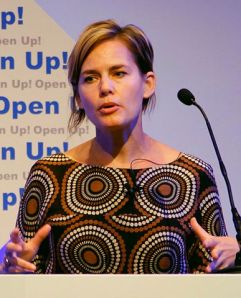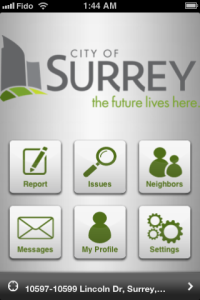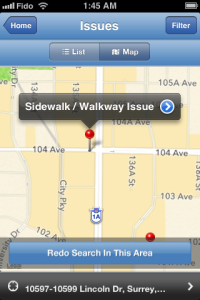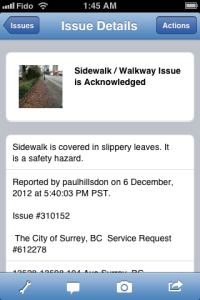In an article in yesterday’s SFGate, Jennifer Pahlka, founder of Code for America, says, “You can’t complain (about the government) unless you step up to the plate.”
Thank you, Jen. You put so succinctly and eloquently, what I’ve been saying right here for a while now. And unlike me, she’s not talking out of her ass. The non-profit CfA is the real deal, doing the dirty work, not trash-talking.
I’ve had a peripheral awareness of CfA’s work for some time, but I’ve only just started looking more closely at them and I’m really seeing how they’re delivering the goods on rethinking and “rebooting” government. A lot of people in North America have bought in to the idea of “government = bad,” and yet so many of them really have no clue (or conveniently choose to forget) what government is, what it does, and why it came about. Sometimes, it takes a disaster to remind some of them how important a role they play in keeping our society functioning, despite all the tales of failure, corruption, and incompetence. But some still don’t get it. Fortunately, there are those who do…
A couple months ago, Pahlka posted a story on LinkedIn titled Paying for Streetlights, One at a Time. This parable tells of the town of Colorado Springs, CO, who was suffering from a burning case of pensionitis and decided to vote against a property tax increase, supposedly earmarked for emergency services. What followed was some rather extreme belt-tightening, including turning off a third of the street lights. People were given the option to donate between $100 and $240 a year to adopt a streetlight and have it turned back on. The cost to adopt one streetlight was more than the proposed annual tax increase, but many were apparently quite glad to pay this. Are people stupid? Of course, that’s nothing new. But this is the state of affairs; trust in government has eroded to a point where people gladly swallow a “cure” considerably worse than the disease, just as long they perceive it as being “less government”.
… we see both the value of local government and the waste and inefficiencies that drive the public away from it. We see that government must get better at what it does, but it also needs to sell its value proposition to citizens. Think about that streetlight – not only does it cost the citizen orders of magnitude more this way, it’s hugely inefficient and costly for the city to administer as well, turning lights off and on depending on whether each individual light is paid for. The better option for everyone would be to just keep the lights on, but the perceived value of government is so low that it drives outcomes that are bad for everyone involved.
Part of what Code for America does is to sell that value, by creating interfaces to government that are simple, beautiful and easy to use. In New Orleans, for example, Code for America Fellows created BlightStatus.com, which allows citizens to type in any address in the city and see whether the property has been reported as blighted, if it’s been inspected, if there’s been a hearing and when, and if the property is scheduled for demolition. The city had been struggling for years to integrate a dozen disparate data sets in a wide variety of formats in order to have a comprehensive view of these properties, even for the city’s own use, but the residents of neighborhoods affected by this blight were increasingly frustrated by the lack of apparent action. When one of the Code for America Fellows showed the application to residents at a community group meeting, he was thanked for his work with hugs.
CfA is working with multiple levels of government across the US to create modern, user-friendly access points (web sites, mobile apps) so people can get the government services they need, one project at a time. And now that these tools are getting into people hands, they’re running out of excuses for not participating in the political process. The future is looking kinda scary, but exciting, too.
Anyway, I don’t want to risk discrediting their work with my crackpot endorsement. Please go see Code for America and judge for yourself.





